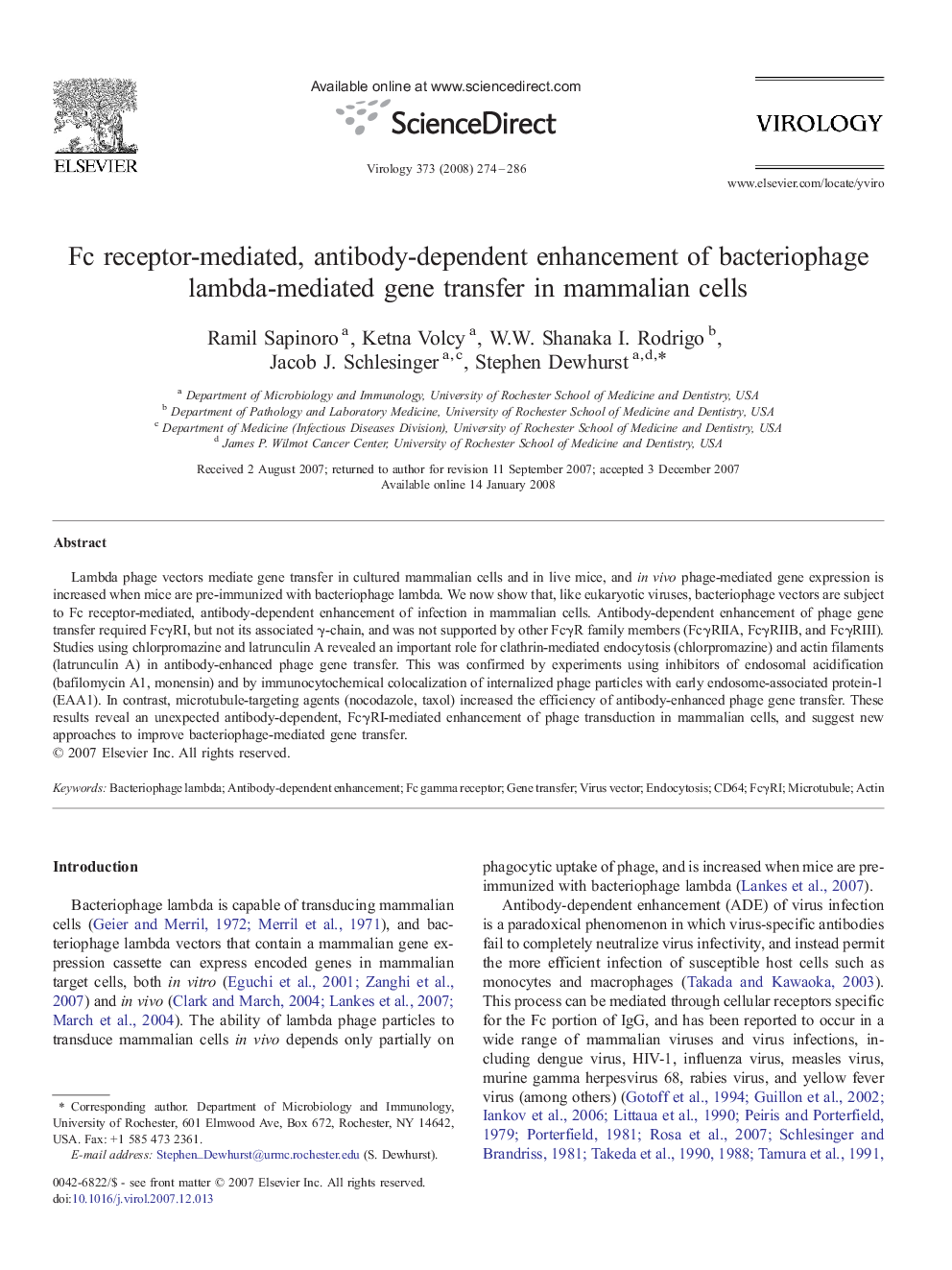| Article ID | Journal | Published Year | Pages | File Type |
|---|---|---|---|---|
| 3425919 | Virology | 2008 | 13 Pages |
Lambda phage vectors mediate gene transfer in cultured mammalian cells and in live mice, and in vivo phage-mediated gene expression is increased when mice are pre-immunized with bacteriophage lambda. We now show that, like eukaryotic viruses, bacteriophage vectors are subject to Fc receptor-mediated, antibody-dependent enhancement of infection in mammalian cells. Antibody-dependent enhancement of phage gene transfer required FcγRI, but not its associated γ-chain, and was not supported by other FcγR family members (FcγRIIA, FcγRIIB, and FcγRIII). Studies using chlorpromazine and latrunculin A revealed an important role for clathrin-mediated endocytosis (chlorpromazine) and actin filaments (latrunculin A) in antibody-enhanced phage gene transfer. This was confirmed by experiments using inhibitors of endosomal acidification (bafilomycin A1, monensin) and by immunocytochemical colocalization of internalized phage particles with early endosome-associated protein-1 (EAA1). In contrast, microtubule-targeting agents (nocodazole, taxol) increased the efficiency of antibody-enhanced phage gene transfer. These results reveal an unexpected antibody-dependent, FcγRI-mediated enhancement of phage transduction in mammalian cells, and suggest new approaches to improve bacteriophage-mediated gene transfer.
